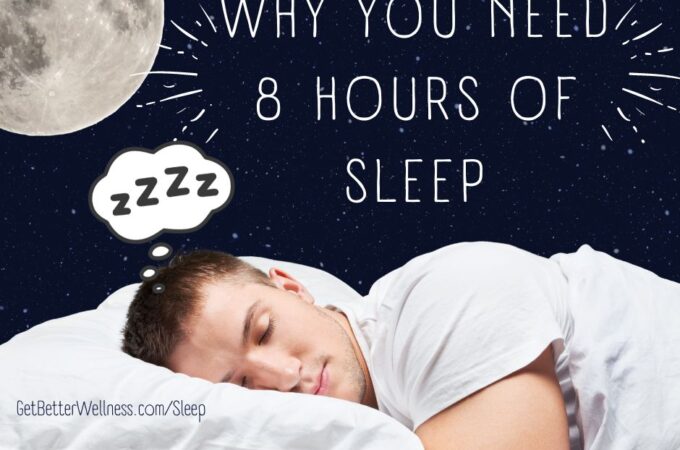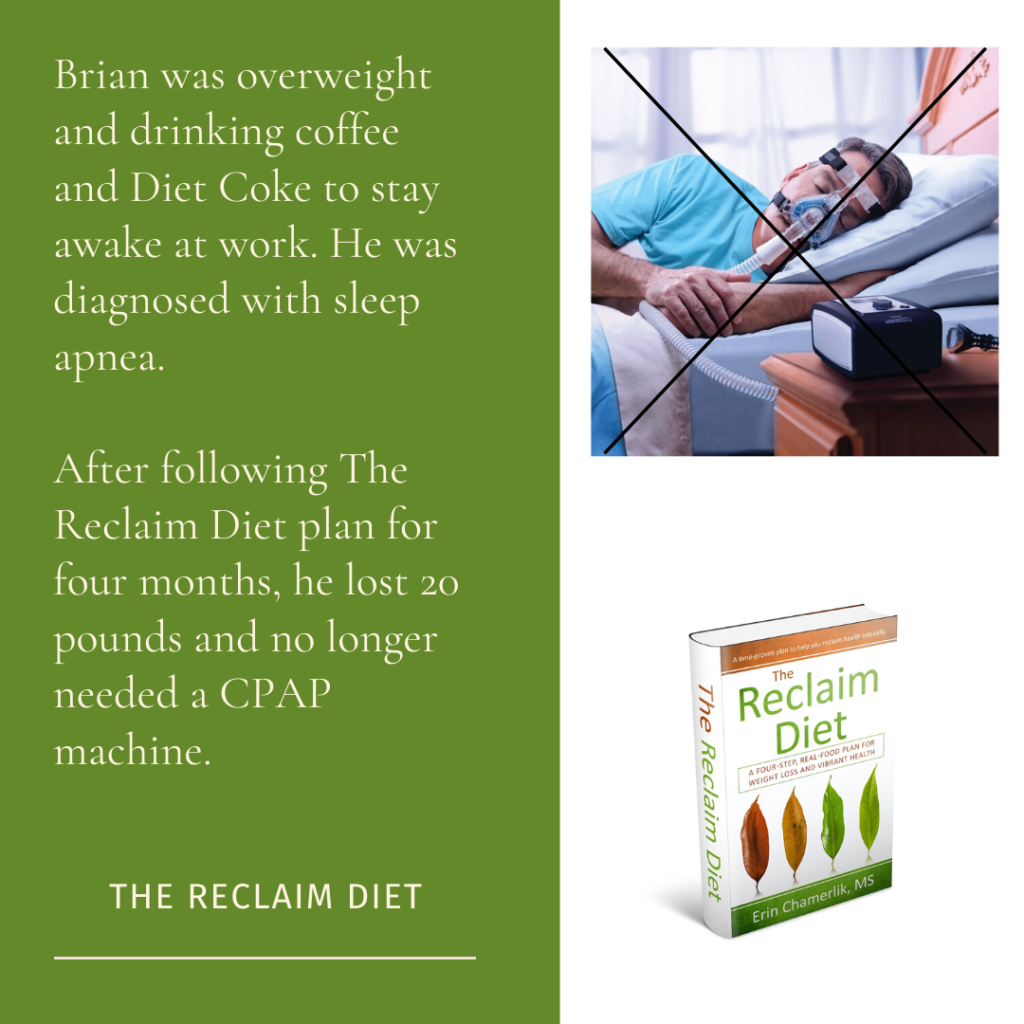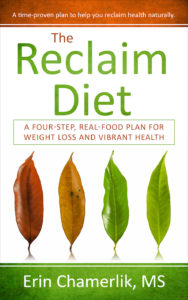
Four reasons that you need about eight hours of sleep
Are you sleep deprived and sick?
If your life is busy and full of responsibilities, you might be like 40% of Americans who are running on less and less sleep. If so, you are “sleep deprived” and part of what the Centers for Disease Control and Prevention labels as a public health epidemic.
Pay attention “night owls” — this is what you may be unknowingly signing up for:
- Depression and mood disorders
- Crankiness and emotional outbursts
- More hunger, overeating and weight gain
- Decreased immune function
- Slow digestion with more constipation
- Increased risk of type 2 diabetes
- Increased risk of cardiovascular disease
- Development, promotion, and progression of cancers from light at night, disrupting melatonin production (27)
- Less brain detoxification, increasing the risk of dementia
- Shortened life expectancy
- Increased accidents and death from drowsy driving
Without enough sleep, we all become tall two-year-olds.
— JoJo Jensen, Dirt Farmer Wisdom, 2002
No matter how hard we try, we cannot trick the body. We cannot “get used to” sleeping less without suffering health consequences. A recent study found that one night of poor sleep could create insulin resistance, the situation that opens the door for weight gain and diabetes (28).
Yes, even you, superwoman, need eight hours of sleep.
While children of school age need 10 or more hours of sleep, adults need at least seven and probably eight hours of sleep each night (29).
Here are a few reasons to help motivate you to get more sleep:
You will burn more fat and calories and desire to eat fewer carbs and less food
- The fat-burning growth hormones spike during deep sleep. You will notice a difference in your ability to lose fat and increase muscle growth when you prioritize sleep.
- Cut yourself short on sleep and you will gain weight and store fat more easily.
- Proper sleep keeps levels of the stress hormone, cortisol, in check. Less cortisol means less belly fat.
- Lack of sleep can have unwanted effects on your sex hormones.
Magic melatonin
Melatonin is the sleep hormone that regulates your body’s sleep-wake cycles. It works in darkness, not while you stare at the television or an electronic device.
Adequate melatonin has many benefits in the body (31):
- Inhibits oxidation and inflammation
- Helps fight against liver injury
- Protects the brain
- Cardioprotective: melatonin protects against various heart diseases
- Reduces sensitivity to pain
- Reduces anxiety
- Antineophobic – this is just a big word that means melatonin helps you deal with new situations, places or things
- Eases depression
- Reduces blood pressure
- Fights tumors
- Benefits eye and blood vessel health
Your brain will have a fantastic tune up.
Your brain wants you to sleep and will reward you when you do (32).
You will be able to:
- Think clearly
- Retain and remember information
- Make decisions
- Solve problems
- Improve school and work performance
- Feel more creative and have new ideas
“Sleep is important for mental function: alertness, memory consolidation, mood regulation and physical health,” says Phyllis C. Zee, MD, PhD, professor of neurology and director of the Sleep Disorders Center at the Northwestern University Feinberg School of Medicine in Chicago.
You will be healthier overall and your skin will thank you.
When you sleep, your body repairs and rebuilds and protects itself from illness:
- Cells are renewed
- Everyday damage from free radicals is reversed
- Your skin loses the sallow, dehydrated look
- You lose the puffy eyes and dark circles
These ten tips will have you sleeping better in no time.
- Eat well. A real food diet with quality animal protein, healthy fat, vegetables, fruit, seeds and nuts will help balance hormones and will help you sleep better. Avoid processed foods which are loaded with refined carbohydrates and hidden MSG that can leave you feeling wired.
- Have a healthy bedtime snack. The right snack will help maintain your blood sugar levels while you sleep, especially during Phase 1. Sugary sweets, chips and simple carbs lead to a drop in blood sugar which causes you to wake up. Try half an apple with a tablespoon of almond butter or sunflower butter; or guacamole with vegetables.
- Commit to getting on a schedule. Go to bed and get up at the same time each day to create a good rhythm for your body. Aim for seven or eight hours of sleep. Turn down the thermostat at bedtime.
- Start your day with sunshine and take Vitamin D3 with K2. Sunlight in the morning helps balance sleep-wake cycles. Try to go outside in the morning for 15 minutes, without sunglasses and without a hat. Go for a quick walk or sit on the patio. Keep this habit up, even on cloudy days, and you will find that your sleep will begin to improve.
- Limit or avoid electronic usage one to two hours before bed. Electronics disrupt sleep patterns and melatonin production needed for sleep. You might also want to install an application that tints your screen to neutralize the blue light. Resources include f.lux, Redshift, or Night Shift (built into iOS).
- Dim the lights in the evening and consider wearing blue light-blocking glasses. Swannies glasses from Swannick Sleep are a good option to block blue light.
- Enjoy a bath with Epsom salts and essential oils. Epsom salts provide the calming mineral magnesium that your skin absorbs. Add essential oils like lavender to enhance the relaxing benefits. A drop or two of essential oils applied to the bottoms of the feet before bed will be quickly absorbed and help promote deep, restful sleep. I love a blend of essential oils named, Peace & Calming®, it is beneficial to quiet children down at night, too, so you can get some rest.
- Take magnesium glycinate capsules at bedtime. 300 to 600 mg before bed will help you relax and fall asleep.
- CBD tincture can be taken under the tongue before bed to assist with sleep. In the resources section, I have more educational information on CBD and choosing quality products.
- Use melatonin to break bad patterns or to avoid feeling jet lagged. Taking four or five milligrams of melatonin at bedtime encourages a restful night’s sleep. I like these chewable tablets with 4mg of melatonin, minerals, herbs and medicinal mushrooms.
How is your sleep? Are you getting enough RESTFUL Sleep?
Here’s the goal: Get 7-8 hours of uninterrupted sleep!
– Cortisol is regulated at night
– Night owls never get a break
Cortisol production slows when you sleep. Stress increases the hormone cortisol. Stress can lead to low progesterone levels.
Cortisol is behind the belly fat and weight gain.
If you’re trying to lose weight, you need to sleep.
If you are trying to have happy hormones, you need to sleep.
Lack of proper sleep, even for one night, makes your body less able to deal with insulin and blood sugar properly.
Your cells aren’t happy and your energy is terrible – again, you get more belly fat too.
Health tip to try today: get a good night’s rest.
If you are not sleeping for seven or eight hours each night, take a look at the ten tips above and try a few of the suggestions.

This entire post is an excerpt from my book, The Reclaim Diet. For scientific references please see the details in the book.
Affiliate links are in this post. This is not medical advice. Consult with your physician.
If you grab anything we mention using our referral links, we may get a small commission. However, there’s no cost to you.
Recommended
-
Dandelion for Liver Support and Health BenefitsJuly 20th, 2024
-
Modified Citrus PectinJuly 11th, 2024
-
Bentonite Clay Mask for Face and ArmpitsJuly 8th, 2024
-
Two Supplements for Erectile DysfunctionJune 30th, 2024








